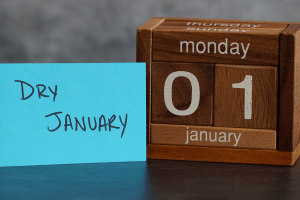Combatting alcohol misuse among college students during the COVID-19 pandemic
Back to school looks very different this year for college students. Many schools have gone online and those that have students on campus are implementing policies around physical distancing. In light of the current coronavirus pandemic, it is especially important this fall for college students to take the necessary measures to protect their health and well-being, particularly if schools have resumed in-person or hybrid classes. Especially now, students and college administrators need to understand the risks associated with alcohol use.
About half of college students drink alcohol and about one-third binge drink. This puts them at increased risk of a broad range of negative consequences including increasing their risk for contracting and spreading coronavirus. For college freshmen in particular, the first 6 weeks of the school year are typically a vulnerable time for underage drinking due to social pressures, increased freedom, and other factors.

Alcohol impairs both physical and mental abilities and decreases inhibitions. Reduced inhibitions from drinking may affect a young person’s ability to take the precautions needed to reduce their risk of contracting the novel coronavirus or spreading it to others, such as maintaining appropriate physical distance and wearing a mask. In addition, alcohol might make it harder for the body to protect against the virus if exposed. Encourage students to follow the everyday practices recommended by the U.S. Centers for Disease Control and Prevention (CDC) to protect themselves and others from the coronavirus, as well as following all guidelines and procedures that have been established by individual colleges and universities. Alcohol can also be misused to calm anxiety that is heightened under the current pandemic in which physical isolation can also lead to social isolation. Remind underage students not to drink any alcohol and students of legal drinking age to limit how much alcohol that they or their friends are consuming. Help all students find positive and safe ways to deal with stress and stay socially connected.
It’s important for parents to recognize that they still have an influence on their college student’s life. Research shows that students who choose not to drink often do so because their parents discussed alcohol use and its adverse consequences with them. Our fact sheets, College Drinking and Fall Semester—A Time for Parents to Discuss the Risks of College Drinking, provide information about the consequences of college drinking and tips to help parents discuss alcohol misuse with their students, respectively.
Since schools are on the frontlines for many students, they play an integral role in combatting college drinking. To aid in this effort, NIAAA recently revised the CollegeAIM—the College Alcohol Intervention Matrix— booklet and website. CollegeAIM is a comprehensive resource to help colleges and universities address harmful and underage drinking among their students by identifying effective alcohol interventions. Developed with input from college alcohol researchers, student life personnel, and alcohol and other drug program staff, CollegeAIM rates more than 60 alcohol interventions based on effectiveness, cost, and other factors. College staff can use the CollegeAIM ratings to find the best combination of interventions for their students and unique circumstance—boosting their chances of success in addressing harmful and underage student drinking.
College drinking is a complex and challenging problem and addressing college drinking takes a village—parents, the campus community, college staff, and government agencies all play important roles. Together, even in the midst of a pandemic, we can work to address harmful and underage student drinking.
For more resources and information, please visit our College Drinking Prevention website and my previous blog about the alcohol use during the COVID-19 pandemic.
George F. Koob, Ph.D.
Need Help for an Alcohol Problem?
If you’re having an emergency, call 911. If you are having suicidal thoughts, call 911, go to the nearest emergency room or call the toll-free, 24-hour National Suicide Prevention Lifeline at 1-800-273-TALK (8255) to help you through this difficult time.
The NIAAA Alcohol Treatment Navigator can help you recognize and find high quality treatment for alcohol use disorder. If you drink excessively, seek medical help to plan a safe recovery as sudden abstinence can be life threatening. NIAAA’s Rethinking Drinking can help you assess your drinking habits and provides information to help you cut back or stop drinking.








